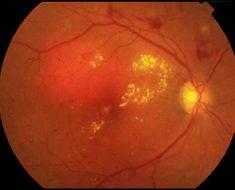MONDAY, Sept. 28, 2020 — Vitamin D sufficiency is associated with reduced clinical severity, inpatient mortality, and serum levels of C-reactive protein (CRP) among patients infected with COVID-19, according to a study published online Sept. 25 in PLOS ONE.
Zhila Maghbooli, Ph.D., from the Tehran University of Medical Sciences in Iran, and colleagues analyzed hospital data from 235 patients infected with COVID-19 to examine the association between serum 25-hydroxyvitamin D (25[OH]D) levels and clinical outcomes.
The researchers found that 74 percent of the patients had severe COVID-19 infection based on U.S. Centers for Disease Control and Prevention criteria, and 32.8 percent were vitamin D-sufficient. A significant association was noted between vitamin D sufficiency and a reduction in clinical severity, lower serum levels of CRP, and an increase in the percentage of lymphocytes after adjustment for confounding variables. Overall, 16.3 percent of patients aged 40 years and older died of infection; of these patients, 9.7 and 20 percent were vitamin D-sufficient and had a circulating level of 25(OH)D <30 ng/mL, respectively.
“Because vitamin D deficiency and insufficiency is so widespread in children and adults in the United States and worldwide, especially in the winter months, it is prudent for everyone to take a vitamin D supplement to reduce risk of being infected and having complications from COVID-19,” a coauthor said in a statement.
Abstract/Full Text
Source: Read Full Article





